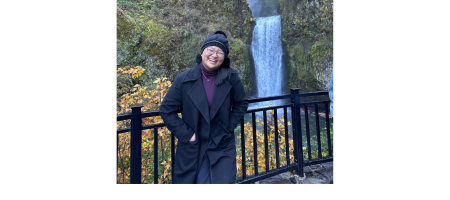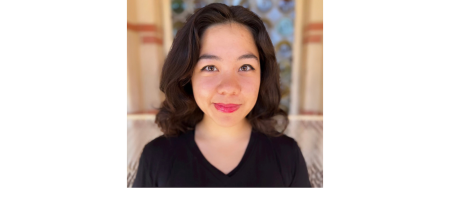Student Spotlight – Chanaporn (New) Tohsuwanwanich
Meet UCLA undergraduate researcher Chanaporn (New) Tohsuwanwanich!
New majors in Geography, minors in GIS&T and Urban & Regional Studies, and is in the Undergraduate Research Scholars Program. The title of her project is “Leaving no one behind?: Shifting Vulnerabilities of Participants in Baan Mankong Program in Bangkok, Thailand.” New’s work aims to gain a comprehensive, holistic perspective of a slum-upgrading program in Thailand called Baan Mankong. She is conducting ethnographic fieldwork to learn more about the successes of Baan Mankong as well as the challenges embedded in the system. Her best piece of advice is to follow your passion!
How did you first get interested in your research project?
In the International Housing Policy class, I learned various case studies worldwide on different facets of housing management. A slum upgrading program proposed by the Thai government called Baan Mankong immediately caught my attention. Despite being a Thai citizen, I have never heard about the program. The system of communal saving groups with government subsidies, focusing on infrastructure and housing loans, is a perfect solution. The program has so much potential to strengthen community bonding through saving and caters to the community’s needs. Consequently, Baan Mankong has been praised by many scholars, with many successful stories of participating communities. However, the struggles of many other communities are still unrevealed. Thus, ethnographic fieldwork and interviews with many stakeholders would help me deepen my knowledge about the community’s efforts.
What has been the most exciting aspect of your research so far?
I visited the field site, walked around the neighborhood, and talked with the community members and policymakers. I have learned a lot from my conversations and hope to expand and understand the community more to address their challenges in the Baan Mankong program.
What has surprised you about your research or the research process?
The interview process was very nerve-wracking for me at the very beginning. It went a lot easier and better than what I expected. I appreciate everyone I talked to, and it fulfilled some missing pieces I have been finding to learn more about the project. They were happy to welcome me to sit in their meeting, talk to professors who came in for community tourism development, or give me a ride to the nearby location. Going into the field was not only a part of the work process but also one of my enjoyments over the past summer.
What is one piece of advice you have for other UCLA students thinking about doing research?
If you know what your passion is, follow your passion! Talk to people: your professors, TAs, seniors, and advisors. Many people are willing to help you out, and there are many resources to support your research journey. Start with asking and taking action!
What effect do you hope your research has in your field, at UCLA, in your community, or in the world?
Learning about the community’s struggles gives a holistic perspective of the Baan Mankong program. Looking at the bright, flourishing communities and recognizing the challenges embedded in the system would help the program benefit a broader range of people. A comprehensive understanding of Baan Mankong would help create a better version. As the Baan Mankong model has also been adopted by other countries, such as the Phillippines, the changes will positively impact Thai communities and benefit other countries in their low-income settlement improvement.



